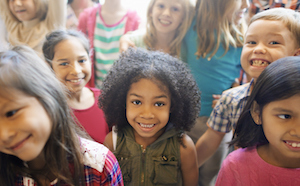
State College Area High School – SCASD
Look, I know it’s a dirty term – I’ve given public school a lot of heat in my adolescence, especially after my experiences with it. It has a connotation to a lot of people that implies blandness, shortage of access to creativity, and a general lack of accommodation for students with interests beyond what the Common Core can support. For many reasons, these connotations are rightly established, because these shortcomings cannot be ignored by the community when we establish better policy in the future, but public school wasn’t designed to be a punishment to all children for ‘having it better’ than those in a previous generation. We can easily find things to appreciate in a government-funded education, especially with its ability to establish a net for students falling off the economic ladder.
First, while it has its kinks, public school has established a huge standard for providing a decent education to a lot of people, and they’re able to give less financially fortunate families an opportunity to attend the same level of education as everyone else in a community. Private schools are pretty exclusive for kids more familiar with the upper class, while anyone can be given a public education that can be worth as much as one puts into it. It’s helping to carry us out of an era that saw poor Americans struggling to even learn how to read, a problem that’s quite thankfully almost nonexistent in most of our modern communities.
Another benefit of public schools is their strict adhesion to a standard of quality in teachers. While private schools are generally able hire whoever they want, teachers in a state-funded school are required to have the appropriate certification needed for teaching a particular subject and/or age range. It should be comforting to know that teachers in a public school setting will always have proven at one point or another that they know how to teach, while private schools – especially ones that develop their Boards of Directors internally – have almost entirely free reign to put anyone in a classroom and give them charge over 20 kids for the day.
Very importantly as well, public schools are also much more welcoming to students with special needs: in fact, they’re required to accommodate for them. Private schools are not required by the government to provide benefits for students in special education, and some schools actively choose not to accept students with extra needs in the classroom. Unlike semi-public charters, who can get in some pretty serious trouble for failing to provide the necessary benefits for these students (and who have gotten in trouble for it), non-public schools can close their doors to them indefinitely.
Ultimately, there are trade-offs with every path in education. I personally couldn’t stand making my way through the public school system, but I was fortunate to have options that allowed me to augment my learning in a better way. For many communities, though, this is the best option they have in a given situation, and it’s a whole lot better than nothing. It saddens me that they sometimes fall short of helping students grow into budding adults, and I wish our legislation gave them a bit more help, but we’re getting there. I’m willing to do what I can to invigorate a tired carcass of an education system and give it more of a modern kick, but I can also sleep at night knowing that we’re able, as a country, to provide as much as we can right now.
